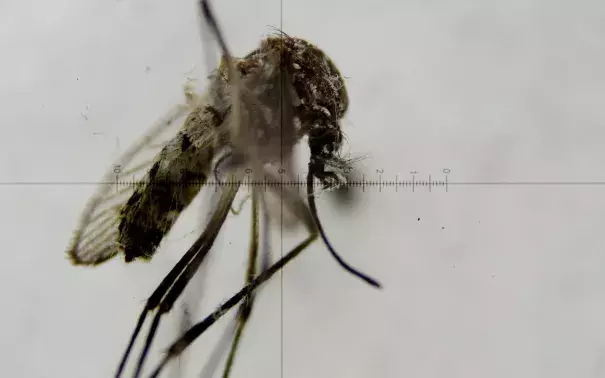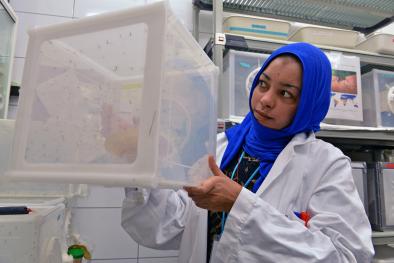Headline
Zika: Another warning flag of climate change health threats?
Brazil

A view through a microscope shows the Aedes aegypti mosquito, which transmits the virus Zika, at a laboratory at the National Institute of Health in Bogota, Colombia. Photo: EPA
Why Zika erupted this year remains an open question. But 2015 was the hottest year in recent history, according to the National Oceanic and Atmospheric Administration, and 2015 also marked an historic strong and long El Niño event that especially affected Latin America. Unprecedented hot and dry weather conditions occurred just prior to Zika's rapid emergence in much of the region.
Zika is just one of many mosquito-borne diseases highly sensitive to weather conditions. Others include West Nile virus, dengue fever, malaria, encephalitis and many more. The surprise of Zika may serve as yet another warning flag for more public health threats linked to climate extremes that are already intensifying due to global climate change
Related Content
Science Source
| The Lancet
El Niño and climate change—contributing factors in the dispersal of Zika virus in the Americas? - The Lancet
Shlomit Paz, Jan C Semenza
Science Source
| Proceedings of the National Academy of Sciences
Global risk model for vector-borne transmission of Zika virus reveals the role of El Niño 2015
Cyril Caminade, Joanne Turner, Soeren Metelmann et al
Headline

Apr 7, 2017 | Carbon Brief
Zika outbreak ‘fuelled by’ El Niño and climate change
Science Source
| MMWR. Morbidity and Mortality Weekly Report
Vital Signs: Update on Zika Virus–Associated Birth Defects and Evaluation of All U.S. Infants with Congenital Zika Virus Exposure — U.S. Zika Pregnancy Registry, 2016
Megan R. Reynolds, MPH; Abbey M. Jones, MPH; Emily E. Petersen et al


